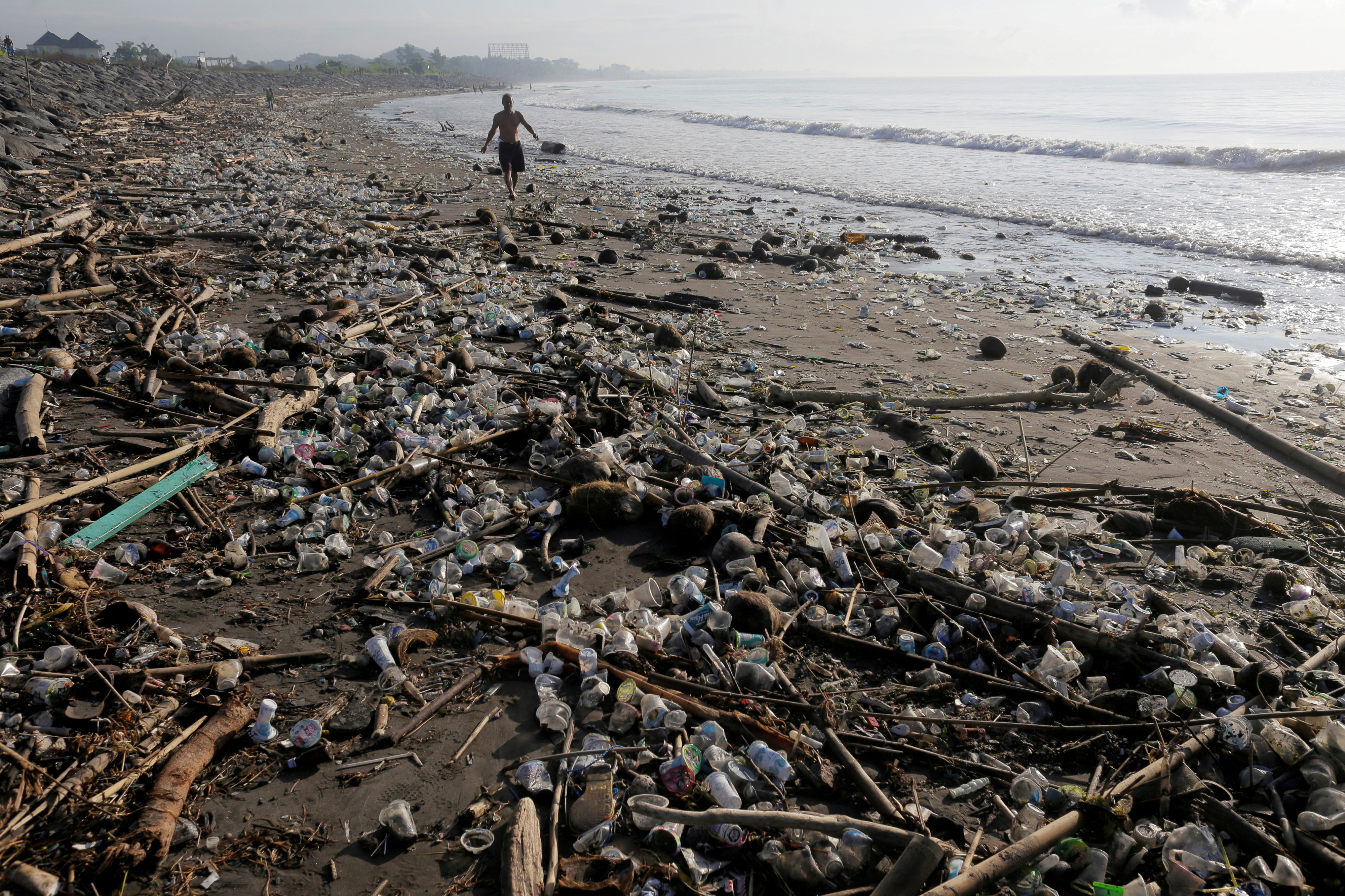This young activist explains how to change the world in 3 steps

"No matter how old you are or where you come from, you can always lead by example." Image: REUTERS/Arnd Wiegmann
- Two young change-makers have taken decisive action against plastic waste on their home island of Bali.
- They founded Bye Bye Plastic Bags, a campaign to ban single-use plastics on the island.
- In 2019, a ban on single-use plastic bags, straws and Styrofoam items was introduced.
- Now they are advising other would-be campaigners around the world on how to become successful activists.
Around the world, youngsters like Melati Wijsen and her sister, Isabel, are taking a stand, campaigning for change to protect their future and that of the planet.
The girls grew up on the Indonesian island of Bali, where the sun-soaked golden beaches had become strewn with plastic waste washed up by the ocean. So, in 2013, the sisters – then 12 and 10, respectively – decided to do something about it.
Melati has laid out three steps she believes anyone can take to make a change for the better.
Step 1 – Know yourself
“Find that one thing that you're incredibly passionate about, that you think about 24/7. This is important because focusing on one thing allows you to find that tangible way that you can make a difference.”
Tired of seeing their island’s beautiful beaches covered in trash, in 2013 the girls founded Bye Bye Plastic Bags (BBPB), a campaign to ban single-use plastics on Bali.
At the start of the campaign, Bali was generating enough plastic every day to fill a 14-storey building. And 95% of plastic bags were thrown away after being used just once.
How UpLink is helping to find innovations to solve challenges like this
The BBPB movement mobilized young people on the island to raise awareness of the issue and pressure authorities to take action.
Step 2 – Know how you're going to reach your goal
“Come up with a timeline. What is step 1? What is step 2? It might not always be easy because it will be different for everybody," Melati says.
“The goal with Bye Bye Plastic Bags was to ban plastic bags. But we got started by doing beach clean-ups, educational workshops, and talks with a lot of different people campaigning. Those are some of the different ways you can get to your goal.”
The sisters organized beach clean-ups and spoke at schools, festivals and markets. They even went on hunger strike to draw attention to their cause and ultimately convinced the governor of Bali to meet them.
After six years of tireless campaigning, Bali banned single-use plastics in 2019, including bags, straws and Styrofoam items like cups and food containers.
What is the World Economic Forum doing about plastic pollution?
Step 3 – Don’t try to do it alone
“You need to have a team and surround yourself with like-minded people to take your idea into reality. But where do you go to get a team? We started with our closest friends. Call them, look to your teachers, your parents and your local communities. And if you speak from the heart, people will follow that," Melati says.
From humble beginnings, the Bye Bye Plastic Bags campaign has spread around the world. There are 50 teams operating in 29 different countries and it has spoken to over 60,000 students.
“Time is ticking. Everything is happening in our lifetime and we know it. The science, the facts, they’re all there...young people are realizing the potential they have to drive change forward."
For young people to continue to realize their potential to enact change, Melati is launching a platform called YOUTHTOPIA to empower young people to take action.
Through workshops, gatherings and online classes the new initiative aims to teach would-be activists skills in areas like public speaking, how to organize campaigns, leadership and talking to governments.
“No matter how old you are or where you come from, you can always lead by example. Don't wait for permission. Don't wait until you're older for someone else to make that path for you. Make your own path – and go for it.”
Don't miss any update on this topic
Create a free account and access your personalized content collection with our latest publications and analyses.
License and Republishing
World Economic Forum articles may be republished in accordance with the Creative Commons Attribution-NonCommercial-NoDerivatives 4.0 International Public License, and in accordance with our Terms of Use.
The views expressed in this article are those of the author alone and not the World Economic Forum.
Stay up to date:
Plastic Pollution
Related topics:
Forum Stories newsletter
Bringing you weekly curated insights and analysis on the global issues that matter.







